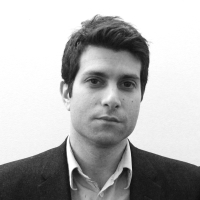Last October, less than a month after the U.S.-led coalition began bombing ISIS positions in Iraq, Iran’s supreme leader spoke about the forces behind the terror group. Ayatollah Ali Khamenei blamed the rise of the self-declared Islamic State on “America, Zionism, and especially the veteran expert of spreading divisions—the wicked government of Britain.”
At that point in the speech Khamenei seemed to be advancing a severe version of a fairly common theory—imperial blowback, linking the rise of terrorist organizations to Western meddling in the Middle East. The same idea was expressed by Iran’s president Hassan Rouhani, a month before Khamenei’s speech, when he addressed the UN General Assembly.
This is a critical moment in U.S.-Iranian relations. High-wire negotiations between the Obama administration and Tehran over Iran’s nuclear program continue while the two countries increasingly find common cause in the war against ISIS. But given the rhetoric coming out of Tehran, it’s worth asking if Iran’s leaders actually believe, as they have repeatedly claimed, that America created ISIS.
It’s unclear what Khamenei’s secretive inner circle believes, but let’s be clear: The Supreme Leader isn’t just talking about mistakes—even catastrophic ones—in U.S. foreign policy or the decision to invade Iraq; he’s describing a deliberate strategy. “They created al Qaida and Da’esh”—the Arabic word for ISIS—“in order to create divisions and to fight against the Islamic Republic [of Iran].”
In December of last year, Khamenei’s senior adviser returned to the theme, saying, “[ISIS] has actually been created by the Western colonial powers and the Zionists because whatever this terrorist group does runs counter to Islam and the rules of all Islamic sects.”
The idea that the U.S. is sowing division among Muslims is central to Iranian ideology, according to Phillip Smyth, a researcher at the University of Maryland. Smyth, who studies Shia Islamist militarism, said: “The general narrative that the U.S. is using ISIS to reoccupy Iraq is being deliberately promoted by Tehran.”
Promoting the idea of ISIS as an American proxy, Iran can position itself as a defender of the faithful and pre-empt U.S. influence in Iraq while expanding its own control. The reality of the tacit U.S.-Iranian cooperation against ISIS hasn’t muddled the larger narrative for militia groups loyal to Iran. A video clip on Iran’s Press TV purportedly recorded by members of the Iranian-backed Kata’ib Hezbollah purports to show U.S. helicopters supplying arms to ISIS militants.
Pointing to Uncle Sam as the real face behind the masked killers of ISIS also diverts attention from the local sectarian politics that spawned the group. ISIS grew beyond its hardcore base through attracting support from Iraq’s Sunni minority, who were repressed and marginalized by the previous Shia-led government in Baghdad. Iran believes that if removing American influence and defeating ISIS militarily is enough to keep the country together, there’s no need to reform a political arrangement that keeps the Sunnis out of power and the government dependent on Tehran for support.
“I have no way of knowing what the leaders of [Iran] believe,” said Abbas Milani, director of Stanford’s Iranian Studies program, when asked about the sincerity of the people espousing them. But, Milani added, “It is clear that the notion that ISIS was a creation of a Western/Israeli conspiracy is central to their narrative.”
“They intermittently claim to have uncovered evidence of how ISIS is armed by the West and/or Israel, and in one case of how Baghdadi was an ‘agent.’ They believe enemies of Iran created ISIS to give Islam a bad name and fan the flames of sectarian conflict.”
The agent Milani refers to is the fictional character Simon Elliot. A report publicized last year through Iran’s official state news outlets claimed to have uncovered documents from NSA leaker Edward Snowden proving that ISIS’s leader, Abu Bakr al Baghdadi, was actually an Israeli actor named Elliot Shimon or Simon Elliot. The entire story is a thoroughly debunked hoax but it spread widely through the Middle East and found adherents among “X-Files”-inspired analysts on the Web. Last July, Bahrain’s Gulf Daily News announced: “Edward Snowden has revealed that the British and American intelligence and the Mossad (Israel’s intelligence agency) worked together to create the Islamic State of Iraq and Syria (ISIS).” This operation, they said, was code-named “Hornet’s Nest.”
I first heard about “Hornet’s Nest” while reporting from Iraq last summer when Shia militia members aligned with Iran credulously told me about the plot.
That was last year. Since then Iran’s influence in Iraq has grown.
Militias funded by and loyal to Tehran’s government have taken a leading role in fighting ISIS alongside volunteers and uniformed Iraqi security forces. In the largest Iraqi military operation to recapture the city of Tikrit to date, Shia militia members make up the overwhelming majority of the force. Joint Chiefs of Staff Chairman U.S. Army General Martin Dempsey estimated that of 24,000 fighters participating in the operation, 20,000 are “Iranian-trained and somewhat Iranian-equipped” Shia militiamen.
As the militias have grown, so have fears that the groups will engage in sectarian violence against Iraq’s Sunni population under the auspices of battling ISIS. A report released by Human Rights Watch this week describes how militias and Iraqi security forces liberated a Sunni village from ISIS last year only to then loot and destroy the village afterward. After seizing the Shia Turkmen town of Amerli, which had been under siege by ISIS, the liberating forces, led by the militias, went on to displace thousands and abduct 11 civilians, according to the report.
It’s too early to say what the outcome of the Tikrit campaign will be for Iraq’s civilians but evidence has already emerged showing some Iraqi security forces and militias engaging in war crimes.





